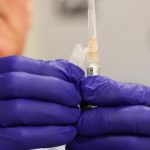![]() Millions of people taking vitamin D2 supplements to boost their health may be inadvertently depleting their body’s stores of the more potent form of the vitamin, according to recent research from the University of Surrey.
Millions of people taking vitamin D2 supplements to boost their health may be inadvertently depleting their body’s stores of the more potent form of the vitamin, according to recent research from the University of Surrey.
Why D2 May Lower D3 Levels
There are two main types of vitamin D supplements available: vitamin D2 and vitamin D3, with D3 considered the more effective form of the vitamin for maintaining health. Vitamin D2 can only be obtained through diet and supplementation, while vitamin D3 is both available in supplements and naturally synthesized in the skin when exposed to sunlight.
While vitamin D2 and D3 are converted into the same active form of vitamin D in the body, vitamin D3 is associated with more health benefits because it is more potent.
The recent study, published in Nutrition Reviews, analyzed data from several randomized controlled trials—the gold standard in scientific research—including 655 adults, and suggests that supplementing with D2 might unintentionally reduce the more beneficial form of vitamin D that our bodies produce naturally from sunlight.
The findings showed that people who took vitamin D2 had lower levels of vitamin D3 in their blood compared to those who did not take it.
Specifically, their levels dropped by about 18 nanomoles per liter on average. This decrease was considered statistically significant by the researchers, meaning it’s unlikely to be due to chance. Over the entire trial, the decrease was about 9 nanomoles per liter.
“Study participants who received vitamin D2 supplementation showed statistically significant reductions in vitamin D3 concentrations, compared to controls without supplementation,” lead researcher Emily Brown, a doctoral research fellow in the University of Surrey’s nutrition, exercise, chronobiology and sleep discipline, told The Epoch Times.
Researchers believe the reduction in D3 levels may be the body adjusting to keep vitamin D levels from becoming too high from supplementation. They cited research showing that vitamin D3 supplementation reduces vitamin D2 levels.
Enzymes that enhance the breakdown of vitamin D2 and D3 metabolites may be activated, causing clearance of vitamin D3, Brown noted.
D2 Versus D3
After vitamin D is absorbed through the skin or obtained from food or supplements, it is stored in the body’s fat cells in an inactive form until needed. Through a process called hydroxylation, the liver and kidneys convert this stored vitamin D into its active form, known as calcitriol, which the body can then utilize.
Both vitamin D2 and D3 get converted into the same active form of vitamin D once inside the body.
Vitamin D plays a crucial role in the functioning of key organs such as the kidneys, intestines, and bones, where it helps regulate the metabolism of calcium and phosphate—essential minerals for healthy bones and overall bodily function. Severe deficiencies in vitamin D can lead to conditions such as rickets in children and osteomalacia in adults, both of which involve weakened bones and abnormal growth.
Vitamin D3 appears to play a unique role in immune function that D2 cannot replicate. Earlier research led by Colin Smith, professor of functional genomics at the University of Surrey and one of the authors of the recent study, found that vitamin D3—but not D2—stimulates the body’s type I interferon signaling system, a key part of the immune system that provides first-line defense against bacteria and viruses.
Smith added that further research into the different functions of vitamin D2 and D3 should be a priority when determining which form of vitamin D supplementation is best for specific health needs.
People may mistakenly take vitamin D2 and D3 supplements interchangeably, thinking that they work the same way.
Considerations for Those Eating a Plant-Based Diet
Most vitamin D3 supplements are made from animal-based sources such as lanolin (from sheep’s wool), but vegan alternatives do exist, Helen Tieu, a registered dietitian, certified diabetes educator, and founder of Diet Redefined, who was not involved in the study, told The Epoch Times. “However, there are vegan vitamin D3 supplements that are made from lichen and algae.”
Tieu added that certain mushrooms can also provide vitamin D, “but it’s typically in the form of vitamin D2,” which would be less optimal compared with lichen and algae-based sources for vegans.
For any level of vegetarianism that is followed “fortification of food with D3 is necessary” as various food groups may be omitted, Nicolette M. Pace, a registered dietitian, founder of NutriSource Inc., and spokesperson for the New York State Academy of Nutrition and Dietetics, who was not involved in the study, told The Epoch Times.
“More liberal vegetarian diets would benefit from the inclusion of animal sources rich in D3,” she added, emphasizing the importance of verifying that supplements and fortified foods contain vitamin D3.











